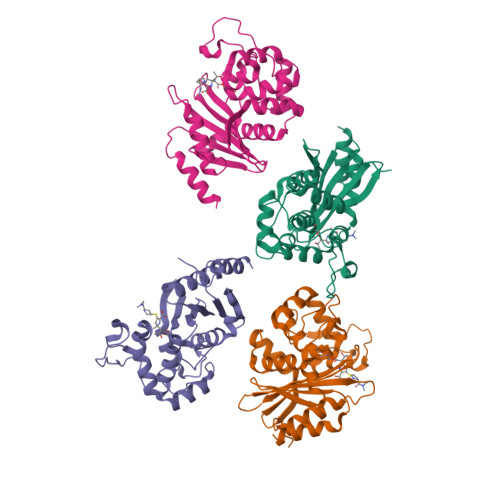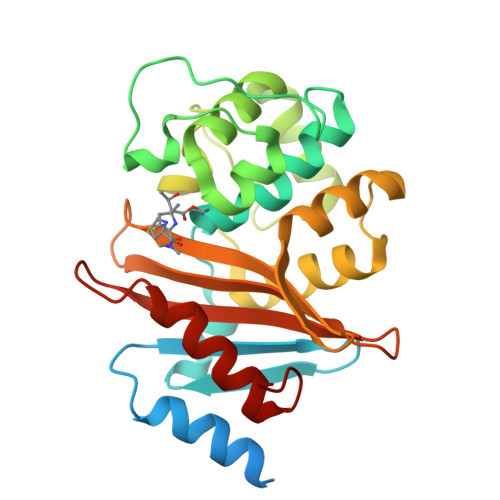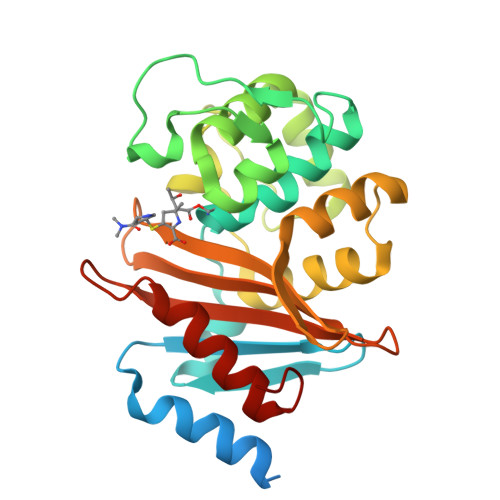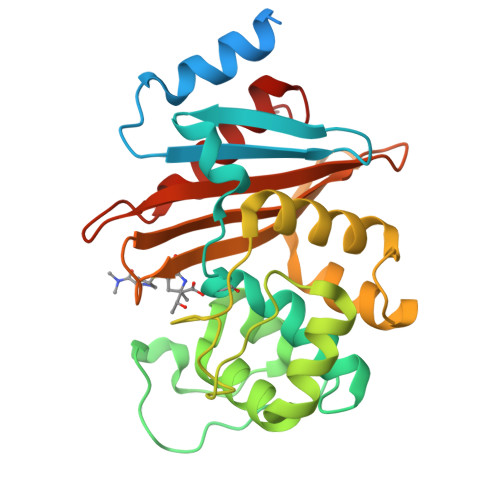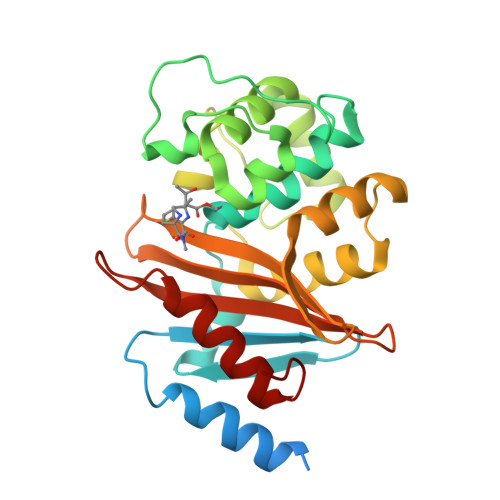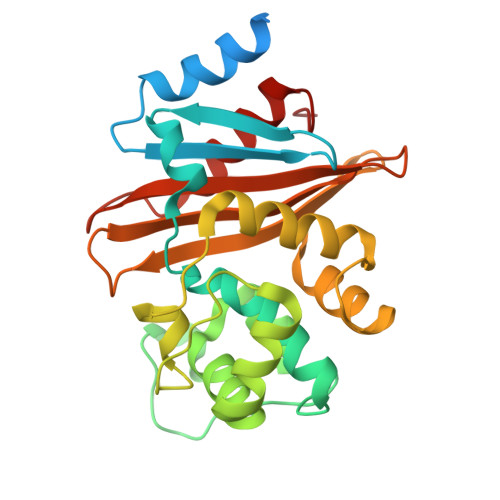Decarboxylation of the Catalytic Lysine Residue by the C5 alpha-Methyl-Substituted Carbapenem NA-1-157 Leads to Potent Inhibition of the OXA-58 Carbapenemase.
Toth, M., Stewart, N.K., Maggiolo, A.O., Quan, P., Khan, M.M.K., Buynak, J.D., Smith, C.A., Vakulenko, S.B.(2024) ACS Infect Dis 10: 4347-4359
- PubMed: 39601221
- DOI: https://doi.org/10.1021/acsinfecdis.4c00671
- Primary Citation of Related Structures:
9D78, 9D79, 9D7A, 9D7B, 9D7C, 9D7D, 9D8C - PubMed Abstract:
Antibiotic resistance in bacteria is a major global health concern. The wide spread of carbapenemases, bacterial enzymes that degrade the last-resort carbapenem antibiotics, is responsible for multidrug resistance in bacterial pathogens and has further significantly exacerbated this problem. Acinetobacter baumannii is one of the leading nosocomial pathogens due to the acquisition and wide dissemination of carbapenem-hydrolyzing class D β-lactamases, which have dramatically diminished available therapeutic options. Thus, new antibiotics that are active against multidrug-resistant A. baumannii and carbapenemase inhibitors are urgently needed. Here we report characterization of the interaction of the C5α-methyl-substituted carbapenem NA-1-157 with one of the clinically important class D carbapenemases, OXA-58. Antibiotic susceptibility testing shows that the compound is more potent than commercial carbapenems against OXA-58-producing A. baumannii , with a clinically sensitive MIC value of 1 μg/mL. Kinetic studies demonstrate that NA-1-157 is a very poor substrate of the enzyme due mainly to a significantly reduced deacylation rate. Mass spectrometry analysis shows that inhibition of OXA-58 by NA-1-157 proceeds through both the classical acyl-enzyme intermediate and a reversible covalent species. Time-resolved X-ray crystallographic studies reveal that upon acylation of the enzyme, the compound causes progressive decarboxylation of the catalytic lysine residue, thus severely impairing deacylation. Overall, this study demonstrates that the carbapenem NA-1-157 is highly resistant to degradation by the OXA-58 carbapenemase.
Organizational Affiliation:
Department of Chemistry and Biochemistry, University of Notre Dame, Notre Dame, Indiana 46556, United States.








